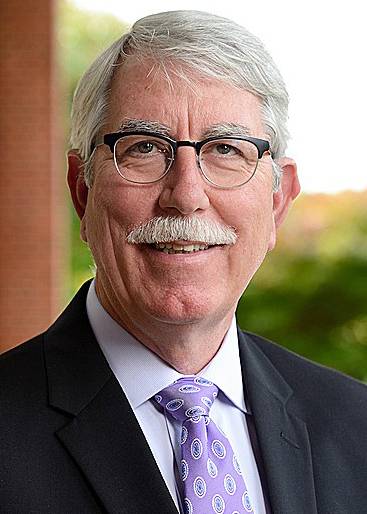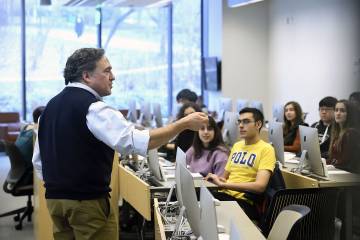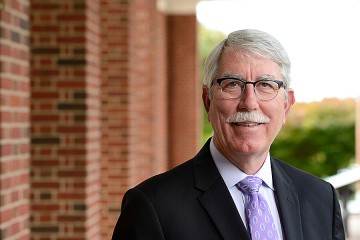Registering for classes at Johns Hopkins is about to become a lot simpler as the university takes steps to adopt a unified academic calendar across all academic divisions, a move that will consolidate more than 20 separate divisional calendars into a single universitywide system.

Image caption: Registrar Tom Black
The creation of a universal calendar began more than three years ago as part of the Student Services Excellence Initiative when the university hosted focus groups, conducted interviews, and circulated a survey that drew responses from almost 3,000 students. From this outreach emerged a consensus that the many different calendars were a barrier to cross-divisional research and learning opportunities, said Tom Black, the university's registrar.
"A unified calendar paves the way for collaboration between schools, improved experience for students, and may fuel innovation and development of cross-disciplinary programs," he said.
These changes were strongly supported by divisional leadership.
"One of the advantages of Hopkins is the quality and expanse of the academic programs that are available across the entire university. This is illustrated in Engineering, where we have two departments that are joint with other divisions," said Ed Schlesinger, dean of the Whiting School of Engineering. "It is critically important that the university align calendars to make it easy for all students to cross divisional boundaries and benefit from every opportunity that the university has to offer."
Under the current system, start dates, add-drop periods, and tuition payment dates can vary by weeks, requiring students to keep track of frequent and often overlapping deadlines in order to register across schools. Automated systems that should serve student needs often require manual work by registrar's office staff on a case-by-case basis in order to allow a student to take full advantage of academic opportunities. Black led a team that developed several versions of the model calendar, addressing issues brought up by divisional registrars and deans' offices, including faculty preferences, scheduling challenges, and ensuring adequate time for orientation programs.
The annual predictability and uniformity of a universal calendar will allow schools to increase registration automation, freeing up staff and advisers to focus their attention on student outcomes rather than duplicative processes while also lessening the risk of human error and noncompliance with state and federal regulations, Black said.
Features of the unified academic calendar include:
- Consistent start dates for fall, spring, and Intersession periods. The summer period will remain flexible.
- A fall period that begins on the Monday before Labor Day and a spring period that ends on the Friday before Commencement.
- Unified semester and dual-term instructional periods during both the fall and spring. Semester-term schools have 16 weeks for instruction, reading period, and exams, while dual-term schools utilize two 8-week instructional periods.
The university calendar provides a framework that gives schools leeway to determine how to best use the instructional periods, and Black has been working with divisional deans on implementation issues relevant for each school. For undergraduate students on the Homewood campus, breaks and final exam schedules are being finalized with the deans' offices. The new final exam schedule will use an algorithm designed by Applied Mathematics and Statistics students to reduce possible conflicts for students.
Mohamad Elgendi, a senior mechanical engineering major, said the early release of exam dates is great news for international students like him, and for anyone who will be traveling at the end of the semester.
"I have to book my roundtrip flights before the semester starts, so it really helps to know when finals are going to be this far in advance," Elgendi said.
A draft of the 10-year model calendar is currently available on the registrar's website. There, users can view the calendar from the perspective of each school, taking note of their program's unique break and end dates. The university registrar's office will accept comments and questions on the model calendar through April 17.
Elgendi encourages students to participate in the survey process and have their voices heard.
"The more feedback they get, the better our solutions will be," Elgendi said. "The schedule is something that affects everyone, so it's important to get it right."
Black said the new calendar will provide a much-needed change to the current system.
"A change like this affects everyone, and we know there will be challenges," Black said. "But when the new calendar is in place, we feel its benefit to our students and their academic pursuits will far outweigh the advantages and familiarity of the current system."
Posted in University News, Student Life










